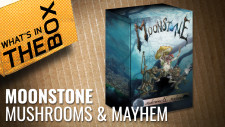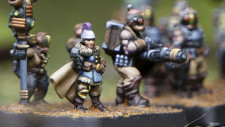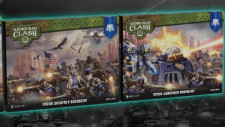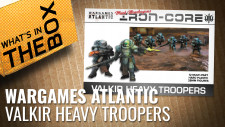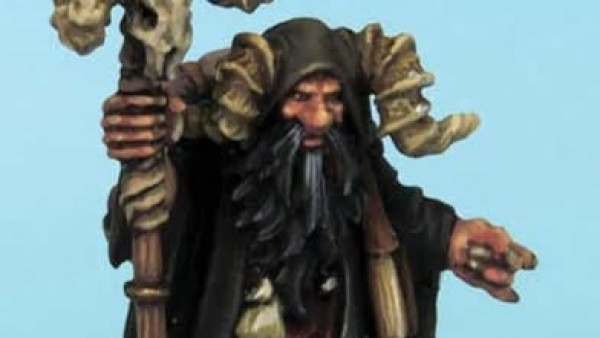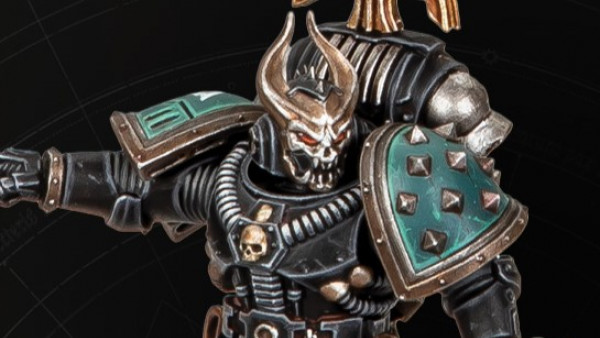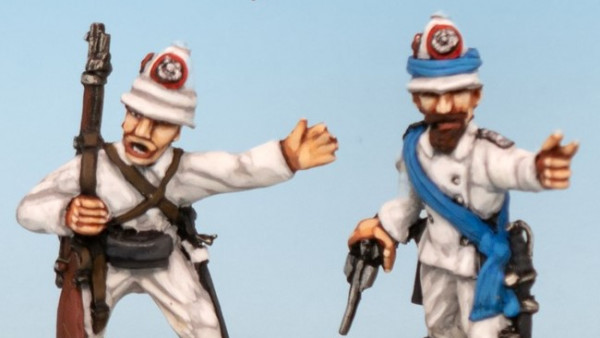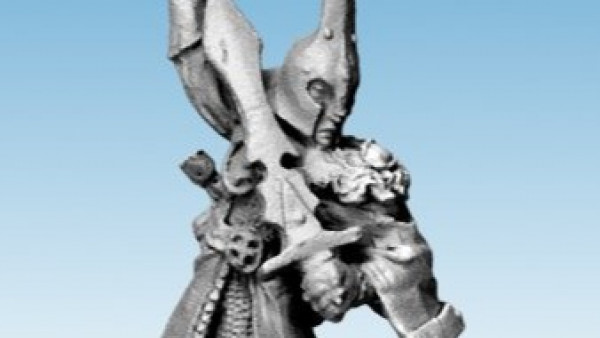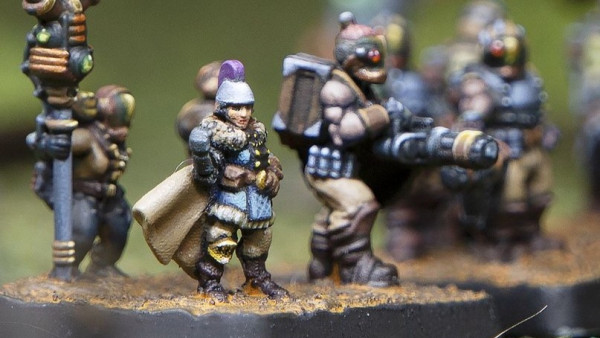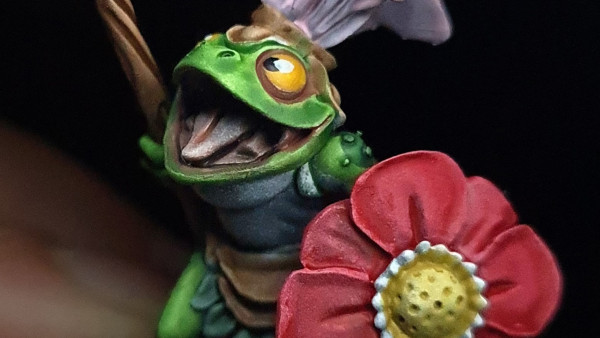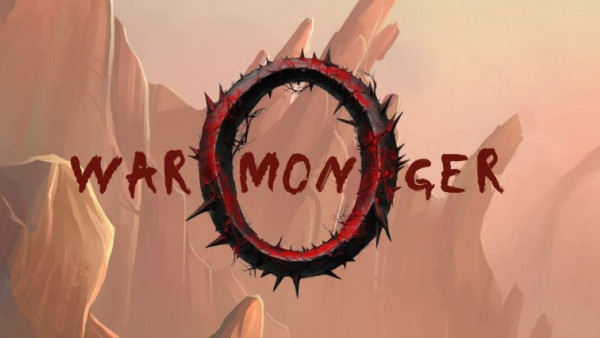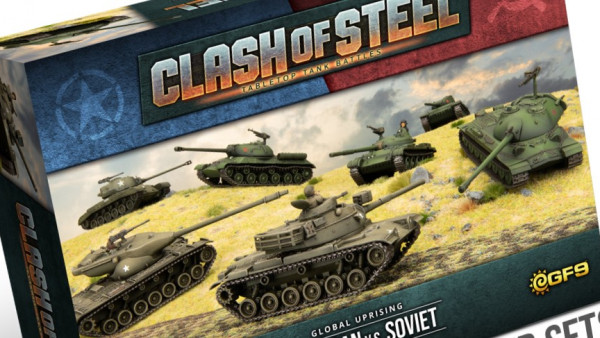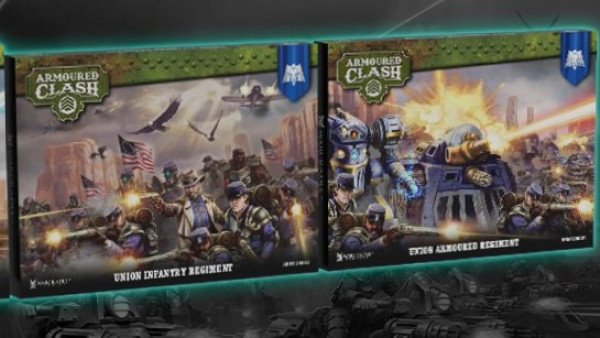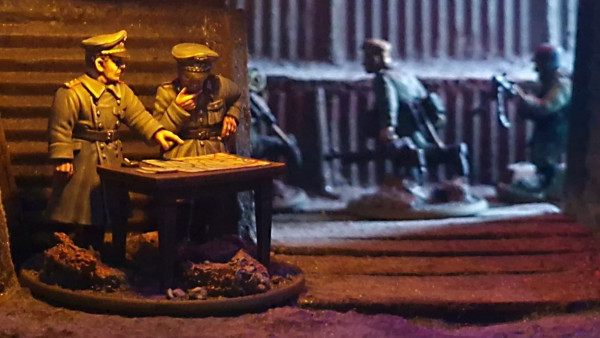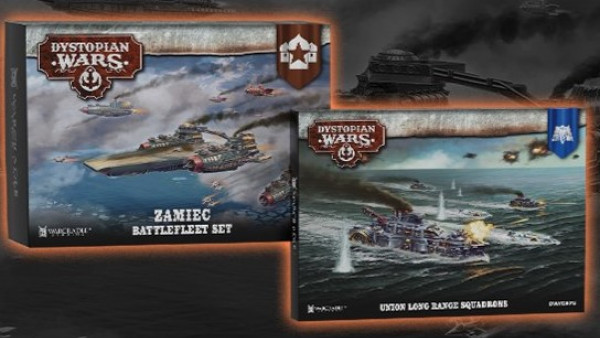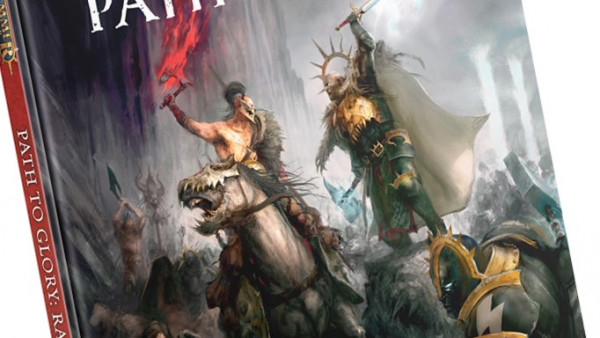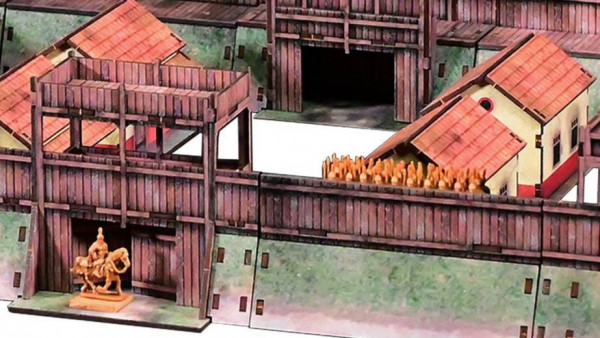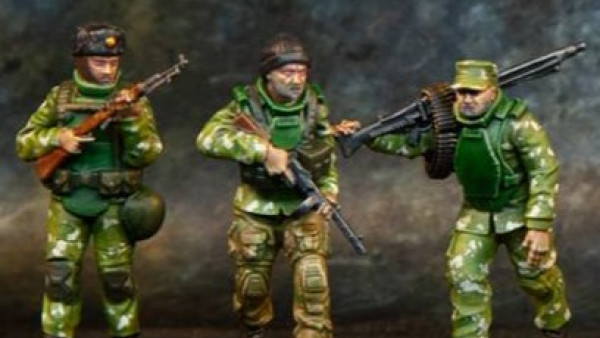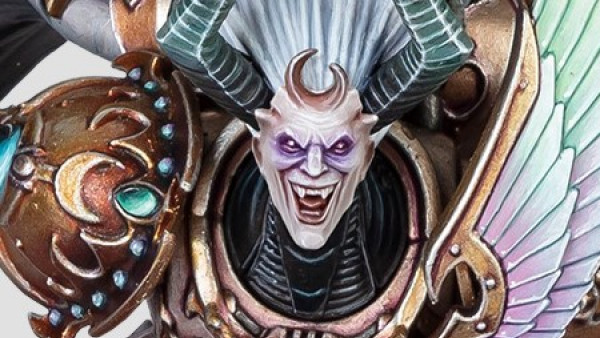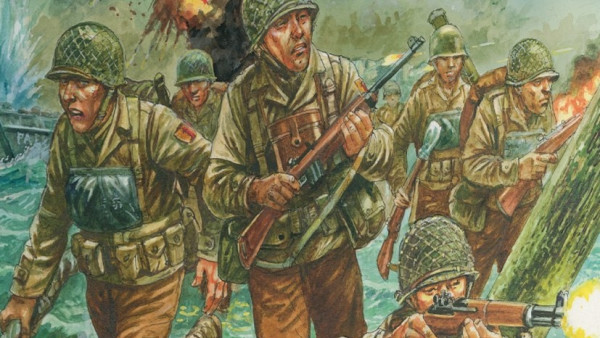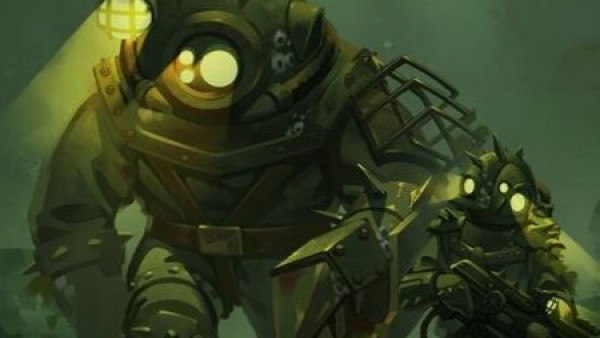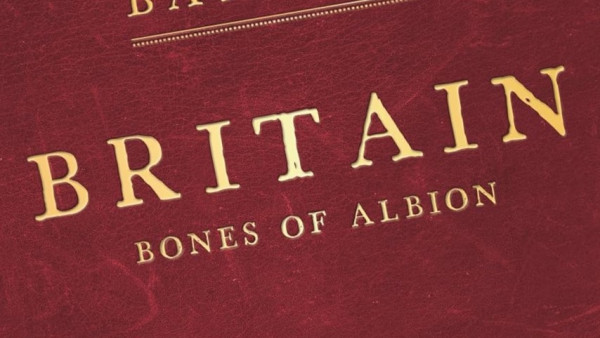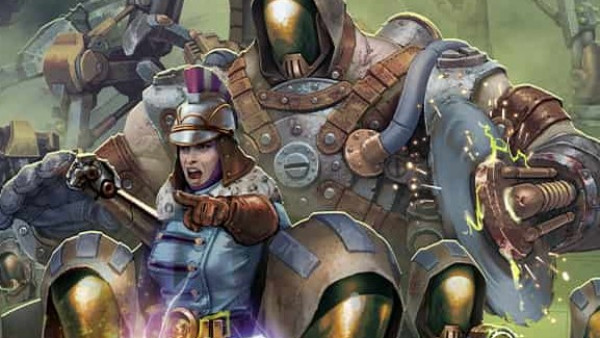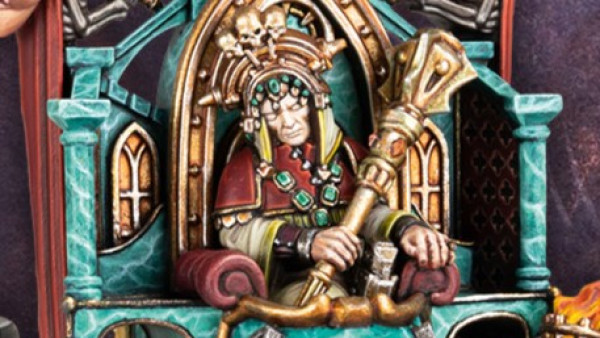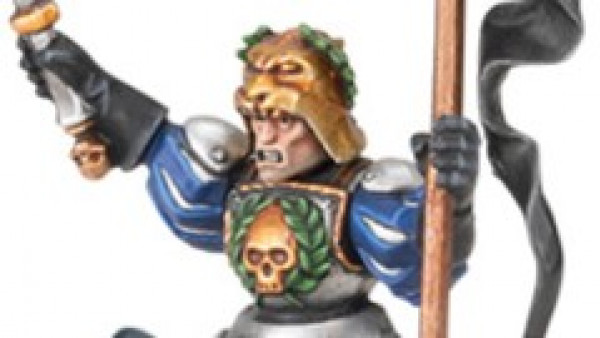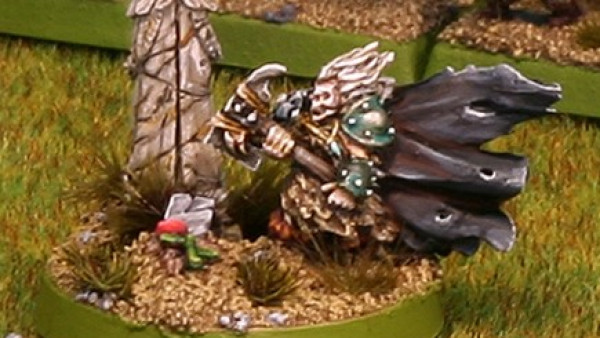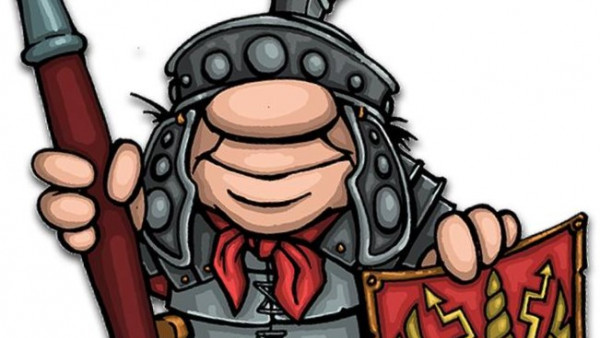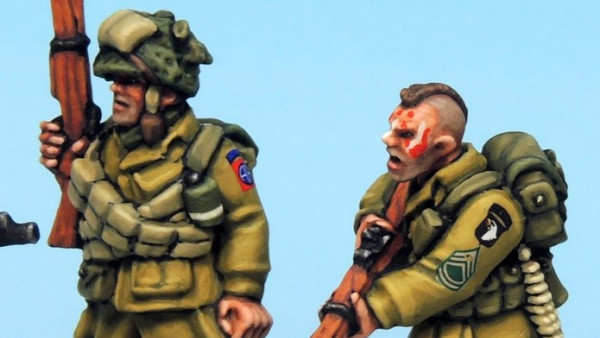Home › Forums › Fantasy Tabletop Game Discussions › If you were in charge of GW now
Related Games:
Tagged: speculation; idleness; warhammer
This topic contains 48 replies, has 16 voices, and was last updated by ![]() onlyonepinman 5 years, 10 months ago.
onlyonepinman 5 years, 10 months ago.
-
AuthorPosts
-
January 24, 2019 at 3:59 pm #1336567
You know, I’m actually very curious what the whole ‘point’ of Age of Sigmar was.
Now, none of us (as far as I know) have any completely solid numbers. Every thread always seems to rely on conjecture and anecdote. We assume Fantasy was killed because it wasn’t making enough money. We assume Age of Sigmar is doing well, etc.
That all being taken at face value, I actually feel like Age of Sigmar was a beta test for their new 40k. 40k is their bread and butter, I think everyone can agree. So it would make sense that they’d take risks with smaller product lines before messing with their behemoth.
Age of Sigmar came out before 40k, Silver Tower came out before Blackstone Fortress, Shadespire came out before Kill Team Arena, etc. In each case, the 40k version is a refined version of the fantasy product.
Age of Sigmar and 8th Edition 40k are so near-identical in rules that I find it pretty compelling that they were willing to sacrifice the Old World to make sure they didn’t take a huge misstep with their big 40k launch. I think this even came across in their marketing for it, saying ‘We won’t destroy the world this time, don’t worry!’, and the like. I mean… Age of Sigmar didn’t even launch with points.
Because whatever people say, Age of Sigmar really doesn’t do anything that Fantasy didn’t. I mean, it’s a far more brain-dead rules system, so I guess you could argue it’s more beginner friendly. Though it uses the same amount of models, the same buy-in cost, the same miniatures, for the most part. Nothing was really stopping them from bringing Darkcave Troggbogs or Gringribbling GloopGobblers or what-not into Fantasy.
While I’ve heard the argument made that Age of Sigmar was necessary, it fulfilled none of its promises. It’s not more accessible, it’s not smaller model count, it’s not cheaper, etc. So while I’m willing to believe it’s doing as well as Fantasy was, I’m less convinced that it’s more successful, or that its launch was divorced from what was to come with 40k.
TL;DR… Age of Sigmar feels to me a bit like a monetized beta test for 40k these days
January 24, 2019 at 4:57 pm #1336611I’m one of those that would never have bought into the fantasy game prior to AOS. It just didn’t appeal to me. I could give plenty of reasons but when AOS was released I bought into it. True the original rules where a bit optimistic in their brevity and lack of points, etc. Points aren’t really required but I understand if you want to have a tournament you will need something like points in order to make it have some semblance of fairness.
Of course there are similarities between the games that GW puts out. I don’t think it would be reasonable to expect otherwise. Look at any other company that has multiple games that they have created and you’ll find that many of the rules are transferred across between games. It also makes sense to me that if you try new(ish) rules in one system and you find that they work or are enjoyable that you will transfer them to another one (for example some of the AOS rules have been incorporated in Killteam).
What I find interesting among some gamers is that there seems to be this belief that competitive gaming is where companies make their money. Obviously it is an area that does make money and it certainly dominates the discussions I’ve seen but I’m willing to bet that there are more people that just want to put some models on a table and play some fun games. A miniatures company doesn’t care what you do with their models after you purchase them. If they sit in the closet still on the sprue for the next 10 years they don’t care because they’ve already made their money.
January 24, 2019 at 7:02 pm #1336676Age of Sigmar definitely does one thing that Warhammer Fantasy didn’t – it scales down. You can play Age of Sigmar with significantly less models and still get a half decent game. That wasn’t really the case with fantasy, not for most armies. I don’t know whether it is currently more successful than Warhammer Fantasy but it does seem to be doing much better now than at launch and I know quite a few players who have returned to GW’s fantasy range since they started releasing the General’s handbooks and reintroducing points and structured games. I definitely think it’s been a test bed for the direction they went with 40k and in some ways it still is, but I don’t think that doesn’t mean it’s also successful. It’s hard to break it down but GW is currently experiencing a period of massive profits, I would be surprised if AoS is a loss maker. Although a lot of that will be releases of things like Necromunda and Blackstone Fortress I think it’s also highly likely that profits are up across all their ranges to varying degrees.
January 24, 2019 at 7:55 pm #1336703I definitely don’t think AoS is a loss-maker at this point, I’m just not convinced it’s making more than Fantasy was. I feel like AoS was mostly put forward with the intention to try things out for 40k, and the fact that it’s become established is more of a bonus.
I just don’t see enough different about it to be convinced that it was this drastic rebranding that ‘saved the game’ or what-not. Outside of the fluff, it just wasn’t a radical enough departure from Fantasy that I can see it completely turning things around.Of course there are going to be people who joined in AoS, but there are also lots of people who left, and there are people like myself, who have tentatively returned to the fold as AoS has become more fleshed-out, and pick up a few kits here and there.
The degree to which AoS doesn’t scale down is what surprises me the most. I was expecting it to be a fleshed out skirmish game. Instead it’s basically 40k.
It’s absolutely true that a tiny game of Fantasy doesn’t work very well, because the units are arranged in blocks and operate as an actual army. The rules for AoS support tiny games just fine.However, so many units require large mobs to be viable. I wanted to get a Beastman army started recently, but ungors or even gors aren’t really useful in mobs smaller than 30, so the model count and cost stack up really quickly. And individual models are very ‘boring’, compared to a model in Warmachine or Malifaux, for example, so smaller AoS games tend to just involve a few random dice rolls in the center of the table, as you roll to hit, wound, and save. They can’t really do any cool things, unless there are huge units and lots of different support pieces.
I think something like Blackstone Fortress is the solution to what people predicted AoS would be, and I think it’s GW’s best product in years, personally.
January 24, 2019 at 10:24 pm #133683340k still plays with a lower model count than Fantasy and scales down in much the same way. You can’t scale Fantasy down very well because a lot of the game relied on minimum unit sizes arranged in ranks.
January 24, 2019 at 10:56 pm #1336853GW got it spot on last year, from the perspective of increasing profits and revenue. Last year, they were the best performing stock listed on the main board of the London Stock Exchange. They’ve been throwing off dividends to shareholders and announced another one just a couple of weeks ago. So financially, they’re spot on.
But turning to your points, I think GW have moved forward. They are a different company today and they have accepted that not all of their customers will move forward with them. But, with their improved marketing, better customer relations, better media channel communications etc etc, for every one customer that doesn’t follow them, they’re probably gaining three or four new ones (probably more). That’s where their growth in sales, revenue and profits is coming from. So they won’t turn back as the market isn’t big enough and it will muddy their main message and story line which is arguably engaging customers. They could also view the ‘legacy’ games as free marketing and another link into their market, models, paints etc.
January 26, 2019 at 7:41 pm #1337966@greyhunter88 Killteam has a similar problem for certain factions in the 40k universe, but definitely not quite as severe as AoS does. It might explain why the factions in Warhammer Underworld are limited to those with enough ‘elite’ style units to make them viable.
Some factions simply rely on mobs to work.
Did the Beastmen faction book have any of the warband rules for the ‘path to glory’ bit in that book ?The Gloomspite Gitz book has them and even their warbands get units of 10-15 followers for some of their troop choices.
The ‘path to glory’ system reads like it helps you build an army up to full strenght so the impact of having to build everything at once is reduced.(yep … I’m starting an AoS army … the gitz got me)
//
Battlefront had Team Yankee (and to a lesser degree their Vietnam game) as a test bed for Flames of War.
Such things are not exactly new in the industry. It’s pretty smart to use a relatively ‘minor’ franchise to test drastic changes before implementing them in the main line. (I think that’s what WoTC should have done for D&D as it could have prevented mistakes … )As to why AoS is a new setting ?
I think it gave them more options for new stuff.
There never was any real reason for certain factions to fight each other in the old setting.
This may not be a ‘problem’ for competitive games, but it does make life difficult for narrative games.Using it as the ‘end result’ of the apocalypse in the old world also reduced the cost of entry for their existing fantasy gamers.
A complete new setting would have made competing systems (like Kings of War) an attractive option.Overall I think AoS has proven to be a success, because they would not have done a v2 of the system.
I wouldn’t be surprised if they released a Mordheim like game for this setting eventually.The Skirmish rules may be for AoS what Shadow wars was for 40k : a test bed for small warbands skirmish game within the setting.
January 27, 2019 at 12:53 am #1338024One of the major changes between the Old World and Age of Sigmar is that the new setting a) enables all kinds of models to exist and feel like they belong in the setting and b) enables virtually any battle between any group of combatants and it feels like it could happen without breaking immersion.
I really like(d) the Old World setting as a low-ish fantasy grimdark setting for a roleplaying game. I quite liked the higher fantasy version of the world that was the setting for the more modern game of warhammer with more fantastical beasts and war machines. But as time went on the plots became larger and larger in scale, and the models got crazier and crazier so that even though I liked many of the large models, they just didn’t feel like they belonged in the world I loved.
I’d thought for a long time they should make a spinoff game set in the Realm of Chaos that would draw upon the original ‘Path to Glory’ campaign and would enable players to have large skirmish games between forces of more elite units and larger monsters.
That wouldn’t have required destroying the Old World, although I don’t necessarily have a problem with them doing it. I just think that the launch of the new game came around the low point in their disengagement from their fans and a self-harming disdain for customers who wanted to feel valued but didn’t. As a result, they launched a game with almost no setting and rules that were too simple, or rather, too lacking in structure (points, set up, guidance on the suggested ‘shape’ of a game, etc). But they’ve fixed or are in the process of fixing much of this.
So while there clearly is some continuity between AoS and Warhammer, I don’t think it’s accurate to say that they’re so similar that there was no point in making the change.
February 7, 2019 at 3:50 pm #1345077Hasn’t’ GW’s financial fortunes taken a big reverse in the last few months anyway?
I think AoS’s success will probably be found at the Start Collecting box sets that they’ve been releasing, rather than AoS itself. Nothing that they’ve done right couldn’t have been done in Fantasy.
Do GW actually learn their lessons? I don’t think so.
They’ve continued to scrap entire lines of models without warning including classic models.
They’ve started to raise the price on the Start Collecting (presumably because they sell so well).
After the cluser**** of AoS’s, I won’t even call it lore or fluff, but whatever * that * was – GW did not learn and allowed 40K to be infected with terrible writing too: the back story of the new Primaris Marines being a big example of this.
8th Edition 40K’s success is in the simplicity and refinement of the rules (a better version of AoS) – but they’ve allowed it to become bloated and overly-complex once again: all the issues that this edition “fixed” on launch.
Investors seem to be perceiving this. GW refuse to learn and listen it seems despite some promising behavior elsewhere.
Most of their recent success is, imo, the new stream-lined edition to 40K (a win) and them making full use of GW’s historical backlog by bringing out fantastic models such as Necromunda and Genestealer Cultists (i.e. the PAST is what drives sales); and experimenting with products designed to be played in local clubs (Kill Team etc.).
40K and Warhammer Fantasy’s history and lore – built up over decades – is what makes their primary audience: model collectors/painters come back over and over (rather than just picking models that take their fancy, which means competitors get a slice of their money). There is nothing like 40K and Warhammer Fantasy out there, they’re both unique despite being based on technically generic things (elves are generic) and copying (e.g. Dune), an incredible accomplishment. Age of Sigmar – probably intentionally – is fully generic and similar if not identical to everything else out there; such as World of Warcraft. That’s the audience they presumably wanted to tap into, but it’s a risk I doubt will pay off. Investors are starting to turn away citing lack of sustainability/the future – though we shall see.
I don’t have the numbers, but from what I can tell AoS’s biggest hits from the Night Haunts to Gloomspire Gitz are literally all Warhammer Fantasy stuff, just expanded: they are not “Age of Sigmar”.
February 8, 2019 at 7:39 am #1345285Hasn’t’ GW’s financial fortunes taken a big reverse in the last few months anyway?
I hadn’t heard this.
40K and Warhammer Fantasy’s history and lore – built up over decades – is what makes their primary audience: model collectors/painters come back over and over (rather than just picking models that take their fancy, which means competitors get a slice of their money). There is nothing like 40K and Warhammer Fantasy out there, they’re both unique despite being based on technically generic things (elves are generic) and copying (e.g. Dune), an incredible accomplishment.
This is absolutely true. Somebody recently asked me what was unique about Warhammer Fantasy compared to, for example, Terrinoth and why people loved one over the other – because they didn’t really know the world and hadn’t spent any time with it. I said they’d answered their own question – that it was a world built on thirty years of RPG, miniatures game fluff and 100+ novels. YEs, you could focus on the grimdark or the juvenile humour but people were invested in it because of their history with it and the remarkable way in which the world had been fleshed out. Its uniqueness came not from the setting but from the level of investment people had in it. The same can, I suspect, be said of 40k (even if space marines are distinctive and easier to protect the IP of).
February 8, 2019 at 8:35 am #1345331@poosh come on man, let it go. It’s been 4 years. Warhammer Fantasy Battle died, it’s not coming back and Age of Sigmar is doing alright now.
Also 40k, if we want to get technical, is as derivative of other sci-fi works as Age of Sigmar. It draws elements from Dune, Star Wars and Aliens to name but a few influences. That’s not a criticism, it’s a part of its success. The fact that they switched to Age of Sigmar in an attempt to try and tap into some of the contemporary fantasy markets shouldn’t be a surprise and it’s definitely something they would have struggled to do by remaining in The Old World, which had a very historical flavour to it.
As for whether the best selling Age of Sigmar ranges are just reworks of the old Fantasy stuff I don’t think that’s entirely true. The Stormcast seem to be very popular because they’re a very easy to use beginners army anf they’re being pushed quite heavily. The only new factions, in my opinion, are the Idoneth Deepkin and the Stormcast. I don’t even consider Kharadron Overlords and Fyreslayers to really be new, they’re just exaggerations of key elements of the original Dwarves. So of course their most popular ranges are from the old WFB game, almost everything in Age of Sigmar is a rework of the old WFB ranges.
February 8, 2019 at 9:43 am #1345448@cornishlee I think GW put out some kind of warning or statement about profits being possibly lower. However it seems to me that a great deal of that is due to currency fluctuations brought about as a result of Brexit and the associated uncertainty around it. I think it might also be inferred that growth has slowed, however given the absolutely phenomenal growth seen between 2016 and 2018 I think that was inevitable. As long as they’re maintaining similar levels of sales I think they will be fine. I don’t believe for a second that GW’s fortunes have reversed, I just think they have hit a level now where further growth might be more difficult.
February 8, 2019 at 1:08 pm #1345629@poosh ‘Hasn’t’ GW’s financial fortunes taken a big reverse in the last few months anyway?’
Their share price has fallen from a high of around £39 a share to around £30 a share, so from that perspective, they’re financial status (the total value of the company) has taken a reverse. BUT, the wider stock market is down across the board on the back of concerns around Brexit, slowing global trade and continuing trade tensions between China and US. While some of these issue don’t really apply to GW, the stock market can be very broad brush in applying risk.
But their recent trading statement to the market was positive and they’re looking for more growth this year, albeit at a slightly slower rate. But then GW have issued conservative trading statements for the past 3 years and they’ve continually over delivered.
Looking from a gaming perspective, WHFB was dying and needed to change. AoS was drastic but the rules also got a complete overhaul. It’s certainly more successful than WHFB was but not everyone wanted to come along for the ride, as 9th Age demonstrates. It was also a fore runner to how to change their cash cow 40k, which also needed a large overhaul. That helped reduce the risk in changing 40k. So I believe they have changed and are learning but they aren’t going to please everyone all of the time. The majority do seem happy, as their growing sales figures would agree with.
February 8, 2019 at 7:36 pm #1345950I think the benefit of 40K and Warhammer Fantasy (100% NOT AoS) is that you can collect models or buy an army that represents something from literature or the movies that you really loved, but that is also it’s own carefully written fiction. It just all works. We know the Adeptus Arbites are copied straight from Judge Dredd, for example: but they fit. We know the Tomb Kings owe a lot to a certain movie franchise: but they fit. The fluff has always been carefully woven from its original source (Hammer Horror for example).
AoS doesn’t do this, the history much like some of the new 40K fluff, is cheap and corporate and no different to anything else and that might cause a problem down the line. Retaining customers as they get over the “oh that look’s cool visually” and locking them into the universe will become difficult imo.
GW’s best sellers, I bet you anything, were their re-release of factions that were fully part of their IP and have a deep history: genestealer cults, dr*gged up goblins, Mad Max Orks.
Games Workshop this year, I suspect, will be developing High Elf Dragon Princes; Vampire Counts Blood Knights; and the Empire Sigmar Priests and Flagellants into their own factions. It will be interesting. But I think they’ve started to realise their bread was always buttered in the old, not the new.
Look at their choice for the new Prim Marines, “vanguard” all they are are armoured scouts and capes/shrouds. It’s the old stuff updated.
February 8, 2019 at 7:52 pm #1345952@redvers My response to that would be that the Fantasy rules always needed an overhaul NOT the setting and that was a fatal mistake. As to AoS’s “success” how can that be ascertained when GW released a huge amount of super-saving boxed sets along with AoS with savings and value that not even Mantic has provided, no one has. These boxed sets were often classic armies too. Couple that with the “easy to learn” rules Id’ say many people were not “coming along” for the ride but enjoying playing or painting Warhammer Fantasy at good reasonable prices. As for increase in people playing AoS, well it’s a lower model count. I’d simply say look at 40K 8th’s success: nothing changed but the rules. The streamlined rules (which were a bit more advanced, sophisticated than AoS) were what caused their success coupled with bringing up classic favourites.
A lot of AoS’s other successes are not related to AoS: for example endless magic spells, the famous Night Haunt release are just re-hashes of Fantasy from the past – they are not new AoS creations or ideas.
Of course I may well be wrong. But my point can only be proven over time: will AoS have the same historical impression in regards to fiction and media as Warhammer Fantasy? or will it be just another “fantasy” game that no one will remember like most fantasy produced today.
I don’t believe GW have killed off Warhammer Fantasy. I don’t think Warhammer Legends is an olive branch: I think it’s an emergency place holder for the future. Again, why are GW re-publishing so many old Warhammer Fantasy novels? That’s odd surely. Unless they’ve noticed something.
Make a movie on Age of Sigmar and it’s identical to Warcraft or any other modern fantasy world.
Make a movie on Warhammer Fantasy and nothing on earth is like it. That’s what keeps people locked their whole lives. Time will tell, but imo some in GW have at least considered this but they are pre-occupied with copyrighting everything and replacing everything with plastic (designed to be incompatible with third party add-ons).
-
AuthorPosts
You must be logged in to reply to this topic.































